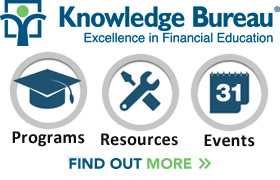
Fall Federal Budget: Will Spending Be Cut?
Canada has historically presented an annual budget since Confederation in 1867, even through periods like World Wars and the Great Depression, but we have recently experienced the longest period without a full federal budget in our history. By the time the next one is brought down, expected in October 2025, it will have been 18 months since the controversial April 2024 budget which introduced the doomed capital gains inclusion rate hikes. What can we expect?HAPPY LANDINGS: THE THEME OF DAC 2025
 Register by June 30 to save on tuition for the Annual Acuity Conference for Distinguished Advisors, who will be exploring the theme: Happy Landings, November 23-26 in spectacular Puerto Vallarta, Mexico. This may in fact, be the most important conference you attend this year: Canada’s only multi-disciplinary gathering, appropriately in Mexico, will bring leading Canadian and international thought leaders together to ponder our New Era of Risk and Reward.
Register by June 30 to save on tuition for the Annual Acuity Conference for Distinguished Advisors, who will be exploring the theme: Happy Landings, November 23-26 in spectacular Puerto Vallarta, Mexico. This may in fact, be the most important conference you attend this year: Canada’s only multi-disciplinary gathering, appropriately in Mexico, will bring leading Canadian and international thought leaders together to ponder our New Era of Risk and Reward.
Wildfires: Apply for Taxpayer Relief Provisions
 It may not be the first concern, but Canadians affected by wildfires may worry at some point about the tax consequences of lost records or missed filing deadlines – the next one on June 16 for those filing T1 returns with proprietorship income. Fortunately, the CRA offers Taxpayer Relief Provisions when there are circumstances beyond a taxpayer’s control, including natural disasters, serious illness or death in the family, or errors made by the CRA, which may trigger penalties and interest due to late or incomplete tax filings. Here’s what you need to know.
It may not be the first concern, but Canadians affected by wildfires may worry at some point about the tax consequences of lost records or missed filing deadlines – the next one on June 16 for those filing T1 returns with proprietorship income. Fortunately, the CRA offers Taxpayer Relief Provisions when there are circumstances beyond a taxpayer’s control, including natural disasters, serious illness or death in the family, or errors made by the CRA, which may trigger penalties and interest due to late or incomplete tax filings. Here’s what you need to know.
Online Mail for Business - A New Development!
 On November 14, 2024, the Canada Revenue Agency (CRA) announced that as of the spring of 2025, it would transition to online mail as the default method for delivering most business correspondence via My Business Account. Traditional mail delivery would be discontinued. This announcement was the only communication provided to business owners; no individual or personalized notifications were issued. This poses challenges to business owners and the financial professionals they work with.
On November 14, 2024, the Canada Revenue Agency (CRA) announced that as of the spring of 2025, it would transition to online mail as the default method for delivering most business correspondence via My Business Account. Traditional mail delivery would be discontinued. This announcement was the only communication provided to business owners; no individual or personalized notifications were issued. This poses challenges to business owners and the financial professionals they work with.
Why Provincial Debt in Canada Matters
 Provincial debt is rising fast — and that should concern every Canadian taxpayer and the professionals who serve them. With every dollar of debt comes an interest payment, but no added value in services. If governments were people, many would be seeking help from a credit counsellor. So why does this matter to your clients — and to you as a tax or financial professional? Because government debt affects interest rates, taxation, and economic growth, all of which impact tax and financial planning for individuals and businesses.
Provincial debt is rising fast — and that should concern every Canadian taxpayer and the professionals who serve them. With every dollar of debt comes an interest payment, but no added value in services. If governments were people, many would be seeking help from a credit counsellor. So why does this matter to your clients — and to you as a tax or financial professional? Because government debt affects interest rates, taxation, and economic growth, all of which impact tax and financial planning for individuals and businesses.
Tax Evasion & The Consequences
 Canadians pride themselves on being an honest people. We pay our taxes. That is, almost all of us pay our taxes. But there is a small percentage of individuals and businesses who are guilty of tax evasion. While most of us pay up, there will always be a percentage looking to cheat the government. Tax and financial advisory professionals are highly trained to advise against this and explain the consequences.
Canadians pride themselves on being an honest people. We pay our taxes. That is, almost all of us pay our taxes. But there is a small percentage of individuals and businesses who are guilty of tax evasion. While most of us pay up, there will always be a percentage looking to cheat the government. Tax and financial advisory professionals are highly trained to advise against this and explain the consequences.
The Future is Specialized: Stand Out in a Competitive Economy
 In today’s fast-changing economy, professionals in the tax, bookkeeping, and financial services sectors are facing increasing pressure to diversify their knowledge, demonstrate credibility, and add tangible value for clients navigating uncertainty. That’s where specialized credentials—particularly the Distinguished Master Advisor (DMA™) Designation offered through Knowledge Bureau—can make a meaningful difference.
In today’s fast-changing economy, professionals in the tax, bookkeeping, and financial services sectors are facing increasing pressure to diversify their knowledge, demonstrate credibility, and add tangible value for clients navigating uncertainty. That’s where specialized credentials—particularly the Distinguished Master Advisor (DMA™) Designation offered through Knowledge Bureau—can make a meaningful difference.

